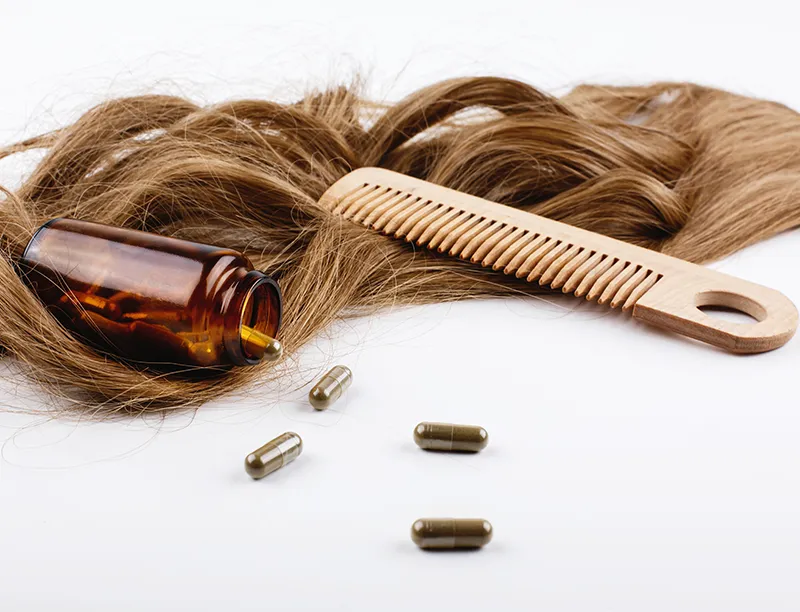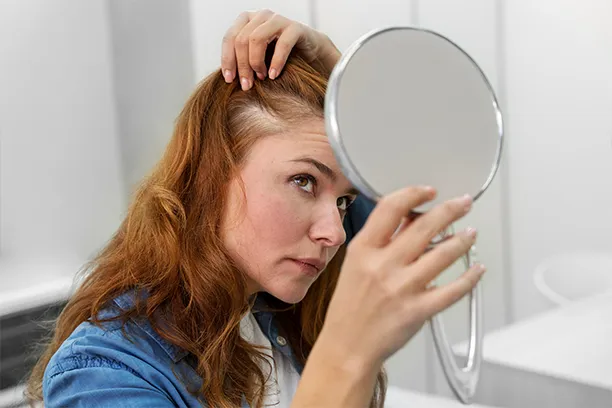Options for Hair Loss Treatment
Hair loss can be a distressing experience for both men and women. However, the good news is that numerous options are available for hair loss treatment. Whether you’re looking for medication options, non-surgical treatments, or a deeper understanding of the hormonal factors behind hair loss, this article covers you.
In the first paragraph, we will explore the various medication options that can help combat hair loss. From over-the-counter remedies to prescription medications, various choices are available to suit different needs. The second paragraph will focus on non-surgical treatments, such as laser therapy and scalp massages, which have been found to stimulate hair growth. Additionally, we will delve into the role of hormones and how they contribute to hair loss, shedding light on the underlying causes. This article aims to provide readers with a comprehensive overview of hair loss treatment options, allowing them to make informed decisions about their personalized treatment plans.
Medication Options for Hair Loss Treatment
Multiple medication options are available for treating hair loss, including minoxidil and finasteride. Minoxidil, an over-the-counter topical solution, stimulates hair growth and thickens hair follicles. Positive results have been reported, but consistent use for several months is necessary. Finasteride, available by prescription, blocks the hormone responsible for hair loss and promotes regrowth in men, but it may have side effects and is not recommended for women.
It is crucial to consult with a healthcare professional to determine the best medication option and potential side effects. Hair loss can be addressed; settling for a receding hairline is unnecessary.
Non-Surgical Treatments for Stimulating Hair Growth
Non-surgical options for stimulating hair growth include laser therapy, scalp massages, and vitamin supplements. Laser therapy uses low-level light to stimulate hair follicles and increase blood flow to the scalp, resulting in thicker and healthier hair.
Scalp massages can promote hair growth by increasing blood flow and reducing stress. Taking vitamin supplements, such as biotin, vitamin D, and iron, can provide essential nutrients for healthy hair growth. It is important to consult a healthcare professional to determine the most suitable option for your needs.

Understanding the Hormone Responsible for Hair Loss
Understanding the hormone responsible for hair loss, dihydrotestosterone (DHT), is crucial for addressing thinning or lack of hair growth. DHT, a byproduct of testosterone, binds to hair follicle receptors, causing them to shrink and cease producing new hair. The enzyme 5-alpha reductase regulates DHT production, and individuals with higher levels of this enzyme tend to have elevated DHT levels. DHT also shortens the hair growth cycle, resulting in smaller follicles and thinner hair strands. Effective treatments for hair loss focus on inhibiting DHT production or blocking its effects. Medications like finasteride or dutasteride, which are 5-alpha reductase inhibitors, reduce the conversion of testosterone into DHT, promoting hair growth. Topical treatments containing saw palmetto extract or minoxidil also target DHT. By comprehending the role of DHT, researchers can continue developing innovative hair loss treatments.

The Role of Hair Follicles in Hair Regrowth
Hair follicles play a crucial role in the regrowth of healthy strands. These small, tube-like structures in the skin produce and nourish hair. During the growth cycle, the cells in the hair follicle divide rapidly, making new hair strands that continue to grow and become visible. Specialized dermal papilla cells within the follicles stimulate hair growth and supply nutrients and oxygen, promoting healthy hair growth.
Additionally, hair follicles contain stem cells that aid in regenerating damaged follicles and promoting the growth of new, healthy strands. Understanding the role of hair follicles is vital for developing effective hair loss treatments that support their health.
Personalized Treatment Plans for Hair Loss
To create a personalized plan for regrowing and revitalizing your hair, consult a hair restoration specialist. They will evaluate your condition, determine the cause of your hair loss, and recommend appropriate treatments. This may include medications like minoxidil or finasteride, lifestyle changes, and hair transplantation or laser therapy interventions.
Remember that regrowing hair takes time, but with a personalized plan, you can restore your confidence and achieve healthier, fuller hair.
